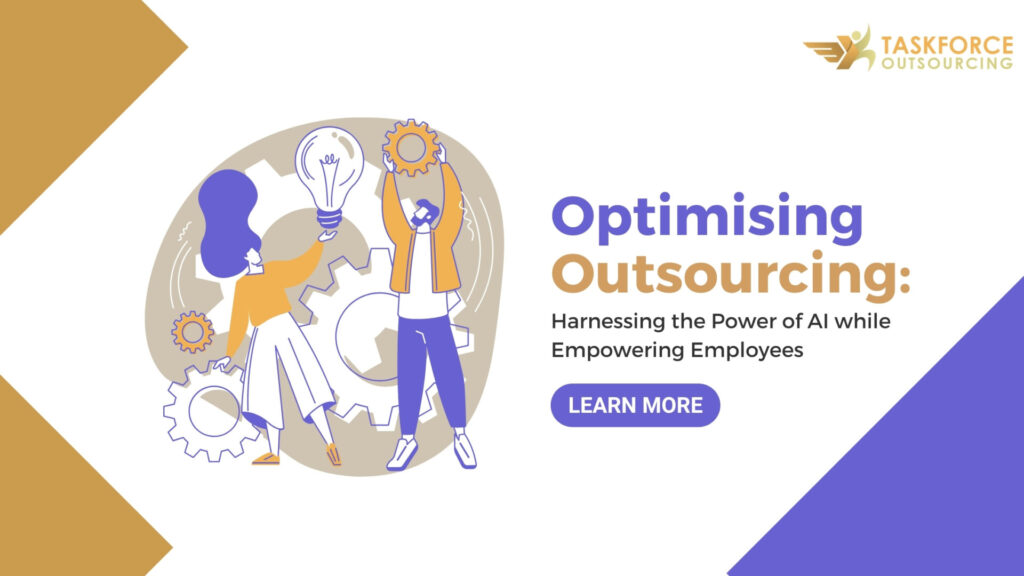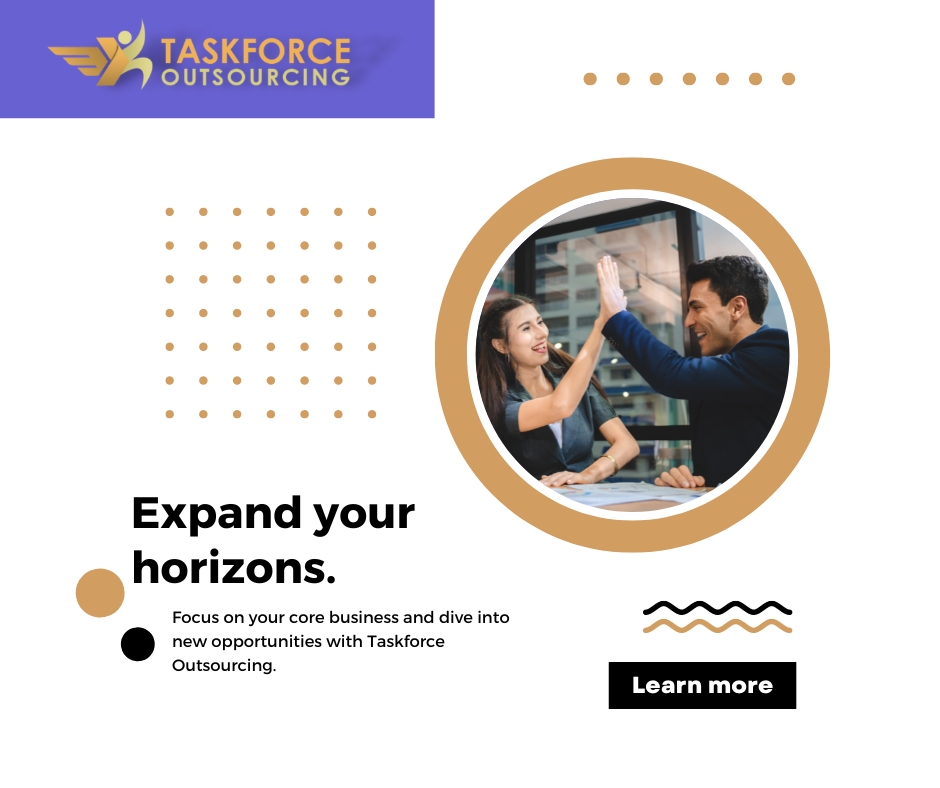Outsourcing has long been a strategic tool for businesses looking to streamline operations, reduce costs, and tap into specialised expertise. With advancements in technology, particularly Artificial Intelligence (AI), there’s a new frontier in outsourcing that not only optimises processes but also empowers employees.
Contents
- 1 Revolutionising Operations with AI Integration
- 2 Enhancing Decision-Making with AI Insights
- 3 Empowering Employees Through AI
- 4 The Benefits of AI in Outsourcing Optimization
- 4.0.1 Streamlining Operations with AI
- 4.0.2 Enhancing Decision-Making Processes
- 4.0.3 Improving Efficiency and Productivity
- 4.0.4 Predictive Analytics and Forecasting
- 4.0.5 Cost Reduction and Resource Optimization
- 4.0.6 Quality Assurance and Risk Management
- 4.0.7 Personalization and Customer Experience
- 4.0.8 Empowering Human Capital
- 4.0.9 Scalability and Flexibility
- 5 Strategies for Implementing AI in Outsourcing
- 6 Overcoming Challenges and Risks
Revolutionising Operations with AI Integration
Integrating AI into your business operations opens up a world of possibilities. From automating repetitive tasks to analysing vast amounts of data in real-time, AI streamlines processes and boosts productivity. By leveraging AI-powered solutions, organisations can streamline workflows, minimise errors, and enhance overall efficiency.
Enhancing Decision-Making with AI Insights
AI provides invaluable insights by analysing data trends and patterns, allowing businesses to make data-driven decisions with confidence. Whether it’s forecasting market trends or identifying areas for improvement, AI empowers decision-makers to stay ahead of the curve.

Empowering Employees Through AI
By automating routine tasks and empowering employees with AI-driven insights, organisations can unleash their creative potential and focus on high-value activities that require human ingenuity and emotional intelligence. This synergy between AI and human intelligence fosters a culture of innovation and collaboration, driving organisational success.
The Benefits of AI in Outsourcing Optimization
Outsourcing has long been recognized as a strategic business practice for delegating non-core functions to specialised service providers. With the integration of AI technologies, such as machine learning and natural language processing, outsourcing optimization has reached new heights of efficiency and effectiveness. AI algorithms can analyse broad amounts of data, extract valuable insights, and automate repetitive tasks, allowing organisations to focus on their core competencies while driving innovation and growth.
Streamlining Operations with AI
One of the primary benefits of AI in outsourcing optimization is the ability to streamline operations and workflows. By automating routine tasks, such as data entry, document processing, and customer inquiries, AI-powered systems can significantly reduce manual effort and human error, resulting in faster turnaround times and improved overall efficiency.
Enhancing Decision-Making Processes
AI technologies enable organisations to make data-driven decisions by providing real-time insights and predictive analytics. By analysing historical data and identifying patterns and trends, AI algorithms can help businesses anticipate market changes, identify opportunities, and mitigate risks, empowering decision-makers to take proactive and informed actions.
Improving Efficiency and Productivity
With AI-driven automation, businesses can achieve higher levels of efficiency and productivity across various functions. By optimising resource allocation, minimising downtime, and eliminating bottlenecks, AI helps organisations maximise output while minimising costs, ultimately driving profitability and sustainability.
Predictive Analytics and Forecasting
AI-powered predictive analytics allows organisations to forecast future trends, demand patterns, and customer behaviour with unprecedented accuracy. By leveraging advanced algorithms, businesses can anticipate market fluctuations, optimise inventory levels, and tailor their offerings to meet evolving customer needs, gaining a competitive edge in the market.
Cost Reduction and Resource Optimization
One of the most tangible benefits of AI in outsourcing optimization is cost reduction. By automating repetitive tasks and streamlining processes, organisations can lower operational expenses, minimise overhead costs, and achieve greater cost-efficiency without compromising quality or service delivery.
Quality Assurance and Risk Management
AI-driven quality assurance systems can enhance product and service quality by detecting defects, errors, and anomalies in real-time. By implementing AI-powered risk management solutions, organisations can identify and mitigate potential risks, such as fraud, compliance violations, and cybersecurity threats, safeguarding their reputation and assets.
Personalization and Customer Experience
By analysing customer data and preferences, AI algorithms can deliver personalised experiences and recommendations tailored to individual needs and preferences. Whether it's personalised marketing campaigns, customised product recommendations, or proactive customer support, AI enhances the overall customer experience, driving satisfaction and loyalty.
Empowering Human Capital
AI empowers employees to focus on high-value activities that require creativity, critical thinking, and emotional intelligence by automating routine tasks and augmenting human capabilities. This symbiotic relationship between AI and human capital fosters a culture of innovation, collaboration, and continuous learning, driving organisational success in the digital age.
Scalability and Flexibility
AI technologies enable organisations to scale their operations quickly and efficiently in response to changing market demands. Whether it's ramping up production during peak seasons or expanding into new markets, AI-driven systems provide the scalability and flexibility needed to adapt to evolving business requirements.
Strategies for Implementing AI in Outsourcing
To effectively harness the power of AI in optimising outsourcing, organisations should adopt a strategic approach that aligns with their business objectives and values. This includes investing in AI talent and infrastructure, fostering a culture of experimentation and learning, and forging strategic partnerships with AI vendors and service providers. By integrating AI into their outsourcing strategies, organisations can gain a competitive edge and accelerate their digital transformation journey.
Overcoming Challenges and Risks
While the benefits of AI-driven outsourcing are undeniable, organisations must also address potential challenges and risks, such as data privacy concerns, ethical implications, and resistance to change. By implementing robust governance frameworks, ensuring transparency and accountability, and prioritising ethical considerations, organisations can mitigate these risks and build trust among stakeholders.
Frequently Asked Questions (FAQs)
A: By automating repetitive tasks, providing data-driven insights for better decision-making, and facilitating personalised learning and development opportunities.
A: Examples include AI-powered virtual assistants for scheduling and task management, predictive analytics tools for forecasting business trends, and personalised training platforms that cater to individual learning needs.
A: AI technology can improve employee satisfaction and engagement by reducing administrative burdens, enabling flexible work arrangements, and fostering a culture of continuous learning and development.
A: Organisations can establish clear guidelines for AI usage, prioritise transparency and accountability, regularly audit AI systems for bias and fairness, and provide ongoing training and education on ethical AI practices.
A: Future trends include the use of AI for personalised learning paths, AI-driven coaching and mentorship programs, and the integration of AI into virtual and augmented reality tools for enhanced collaboration and creativity.
By embracing AI technologies, organisations can unlock new opportunities for innovation, efficiency, and growth while nurturing their most valuable asset—their employees.


